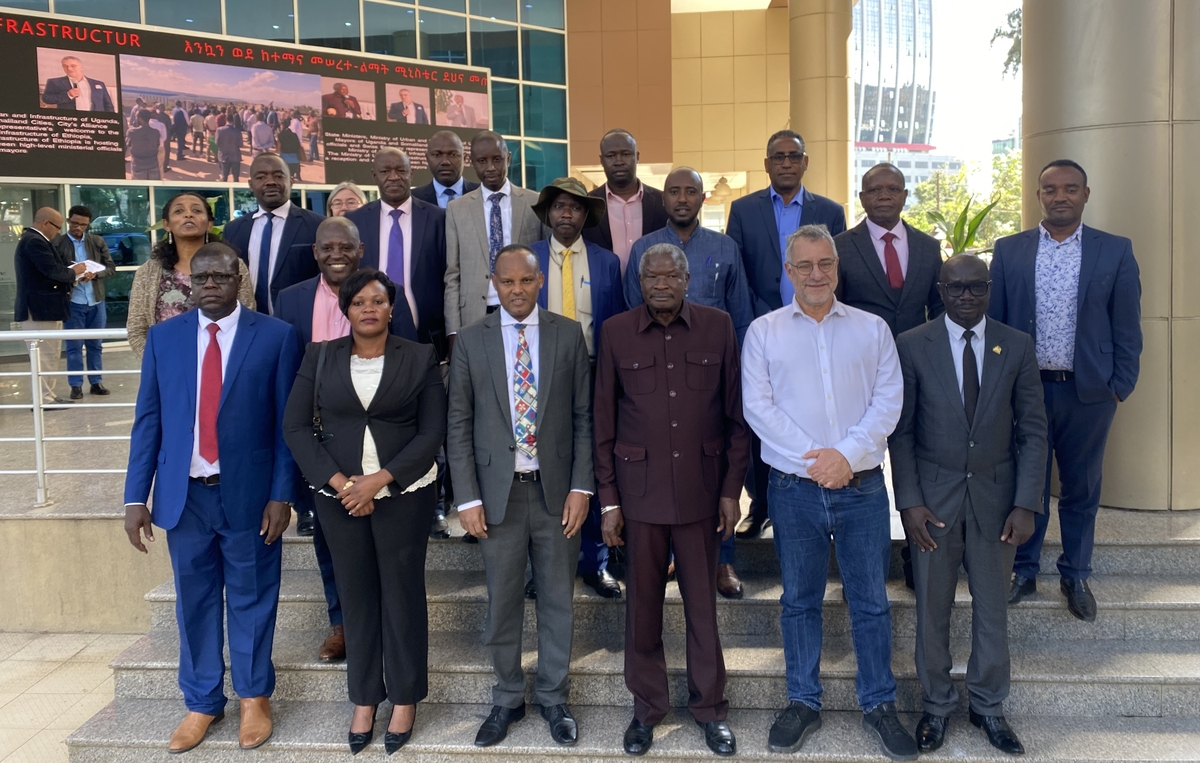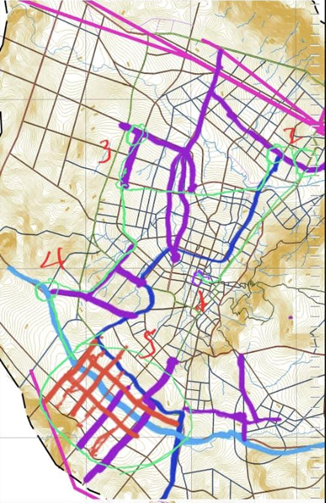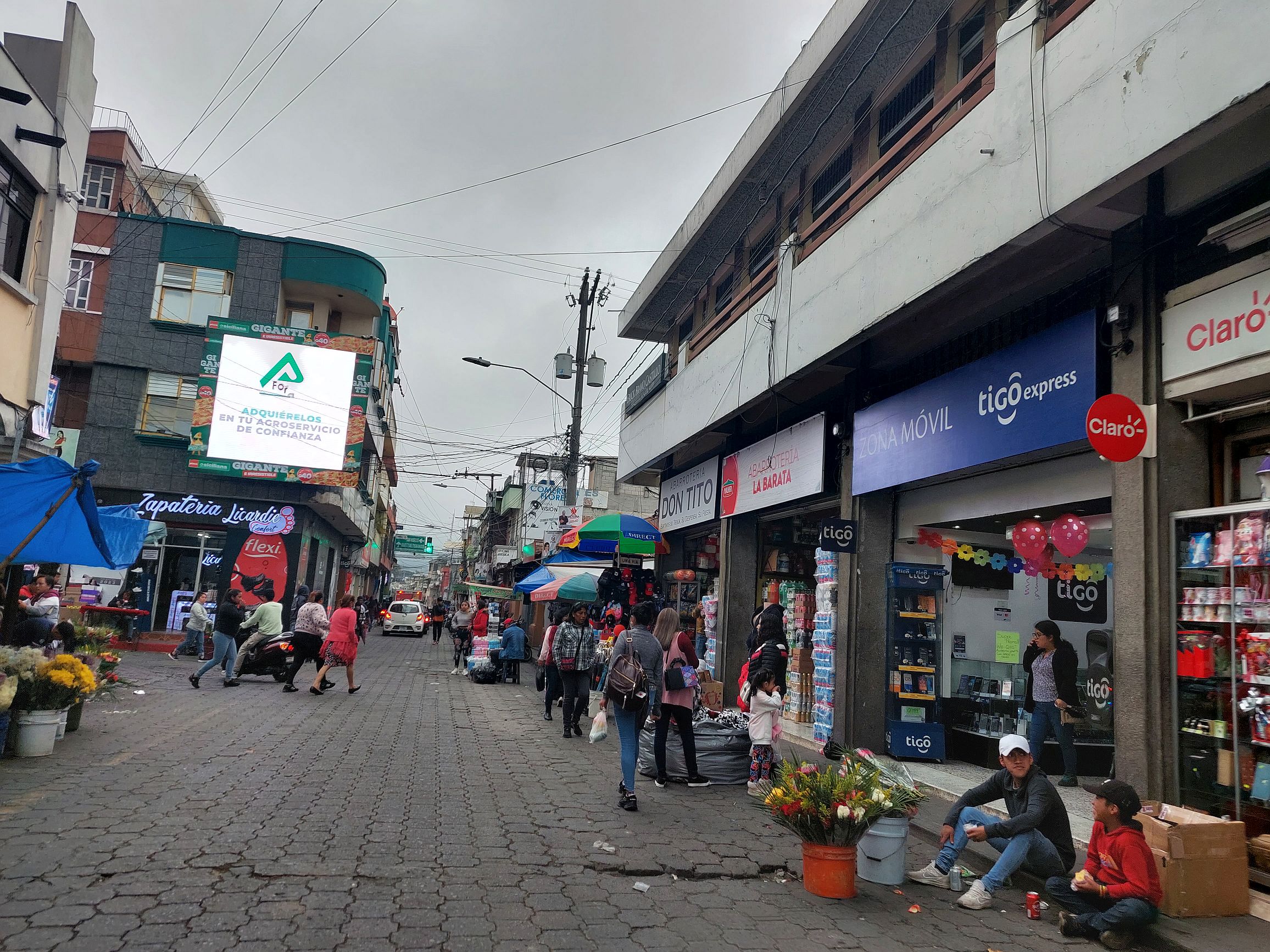More than 13 cities from the Horn of Africa have come together and signed the Mekelle Resolution of Cities, committing to supporting urban growth that is planned, inclusive, and sustainable.
Urban populations are surging due to natural growth and rural-urban migration, especially in secondary cities in the developing world and the Horn of Africa in particular. Much of this expansion is disorderly, with inadequate infrastructure and severe environmental consequences. In Sub-Saharan Africa, 80 per cent of residential areas developed in the past 25 years are informal and unplanned.
In the Mekelle Resolution of Cities, mayors from Ethiopian, Ugandan and Somaliland cities and senior central government officials commit to planning proactively for urban growth. They also stress the importance of attaching adequate financial and human resources to developing and implementing cities’ plans for urban expansion.
The Mekelle Resolution is the result of a recent high-level exposure visit to Mekelle, Ethiopia organised for Cities Alliance partner cities in Eastern Africa to learn firsthand about the benefits of Urban Expansion Planning.
The visit, which took place 20–23 November 2023, was part of Cities Alliance’s project supporting Urban Expansion Planning for inclusive, green growth in Ethiopia and Uganda, funded by the Swiss Agency for Development and Cooperation (SDC).
Cities Alliance co-organised the visit in cooperation with the Ethiopian Ministry of Urban Development and Housing, the Ministry of Local Government of Uganda, the Ministry of Lands, Housing and Urban Development of Uganda, the Ethiopian Civil Service University, and Makerere University.
Some pioneering Ethiopian cities have been engaging in Urban Expansion Planning since 2013, crafting plans that consider the specific needs of youth and women to access safe transport, markets, public space, water, and sanitation.
During the three-day visit, participants toured Mekelle’s newly built arterial roads, residential neighbourhoods, and industrial parks. They reflected on the Ethiopian approach and related it to their own experiences in developing urban expansion plans.

The event was attended by regional delegations, led by mayors, with representatives from central and local governments from three countries and 13 cities, including Adama, Bahir Dar, Dire Dawa, Mekelle, and Wajale in Ethiopia; Arua, Gulu, Jinja, Koboko, and Mbale in Uganda; and the Somaliland cities of Boroma, Gabiley, and Tog-Wajale.
10 years of Urban Expansion Planning in Mekelle
With a population of approximately 559,000, Mekelle is the second-largest city in Ethiopia and the economic, cultural, and political centre of the Tigray region.
Like many other urban areas across East Africa, Mekelle has grown rapidly in recent decades, with an average growth rate exceeding 6 per cent. Over the past 40 years, its built-up area has expanded about nine times, from 3,524 ha in 1984 to about 32,000 ha in 2023.
In 2013, Mekelle was one of four pilot cities (in addition to Adama, Bahir Dar, and Hawassa) selected in partnership with the former Ministry of Urban Development and Construction and New York University (NYU) to participate in the pioneering Ethiopian Urban Expansion Initiative. The NYU Marron Institute of Urban Management introduced the Urban Expansion Planning approach and supported the pilot.

Mekelle used its historic growth rates to estimate future population growth and expansion so that it would be able to plan more effectively. According to the projections, Mekelle’s population would increase fivefold from 2013–2040, with its built-up area more than doubling over the same period.
The city realised it had to think long term to proactively accommodate this growth and began preparing an urban expansion plan.
Mekelle’s political and technical leaders understood that planning for its rapid growth is a unique opportunity to provide existing and future residents with affordable housing, basic services, and job opportunities, and firms and industries with decent infrastructure, business opportunities, and affordable, serviced land.
The city calculated and planned for its investment needs and integrated its urban expansion plan with its ten-year structural development plan. It surveyed the land and negotiated with landowners for the rights-of-way for the arterial roads.
In 10 years, the city has successfully implemented the first two of five planned phases and constructed over 120 km of asphalt road. The developed expansion areas have provided access to affordable housing and basic services to many new residents, as well as locations for businesses and industries in and outside of an international and a local industrial park. Mekelle’s expansion area now hosts an airport, a medical school, and a teaching hospital.
We were able to see for ourselves in Mekelle the importance of prioritising investment into road infrastructure as it has so many multiplier effects.
Sanya Kirk Wilson, Mayor of Koboko and President of the Urban Authorities Association of Uganda (UAA)
Learning from Mekelle
The visit provided valuable, practical insights into Mekelle’s experience with Urban Expansion Planning.
The city demonstrates that the Urban Expansion Planning approach is not an end in itself, but a simple but impactful planning tool that allows city authorities to make room for growth, industrialisation, and sustainable, inclusive development. At the same time, it can facilitate attracting and guiding investment.
Mekelle also highlights the importance of involving all stakeholders in the plan’s implementation process, including landowners, land developers, and communities. Building trust in the plan, its implementation, and the resulting benefits is critical to success.
Another key benefit of Urban Expansion Planning is that it is cost-effective. Mekelle shows that there are a variety of options for financing urban expansion, especially the rights-of-way and road infrastructure. Contextualised approaches to land value capture can be a valuable financing tool.
Based on their experience during the visit, the Somali, Ethiopian and Ugandan delegations issued the Mekelle Resolution of Cities, which was signed during a reception at the Ethiopian Ministry of Urban and Infrastructure in Addis Ababa attended by the Ethiopian and Ugandan State Ministers for Urban Development.
The Honorable Obiga Kania, State Minister for Urban Development at the Ugandan Ministry of Lands, Housing and Urban Development, summed up the value of the visit to Mekelle:
I have learned about the importance of proactive and long-term physical development planning ... People coming to the city know where to settle. It is easier to guide them and for government to provide services.



